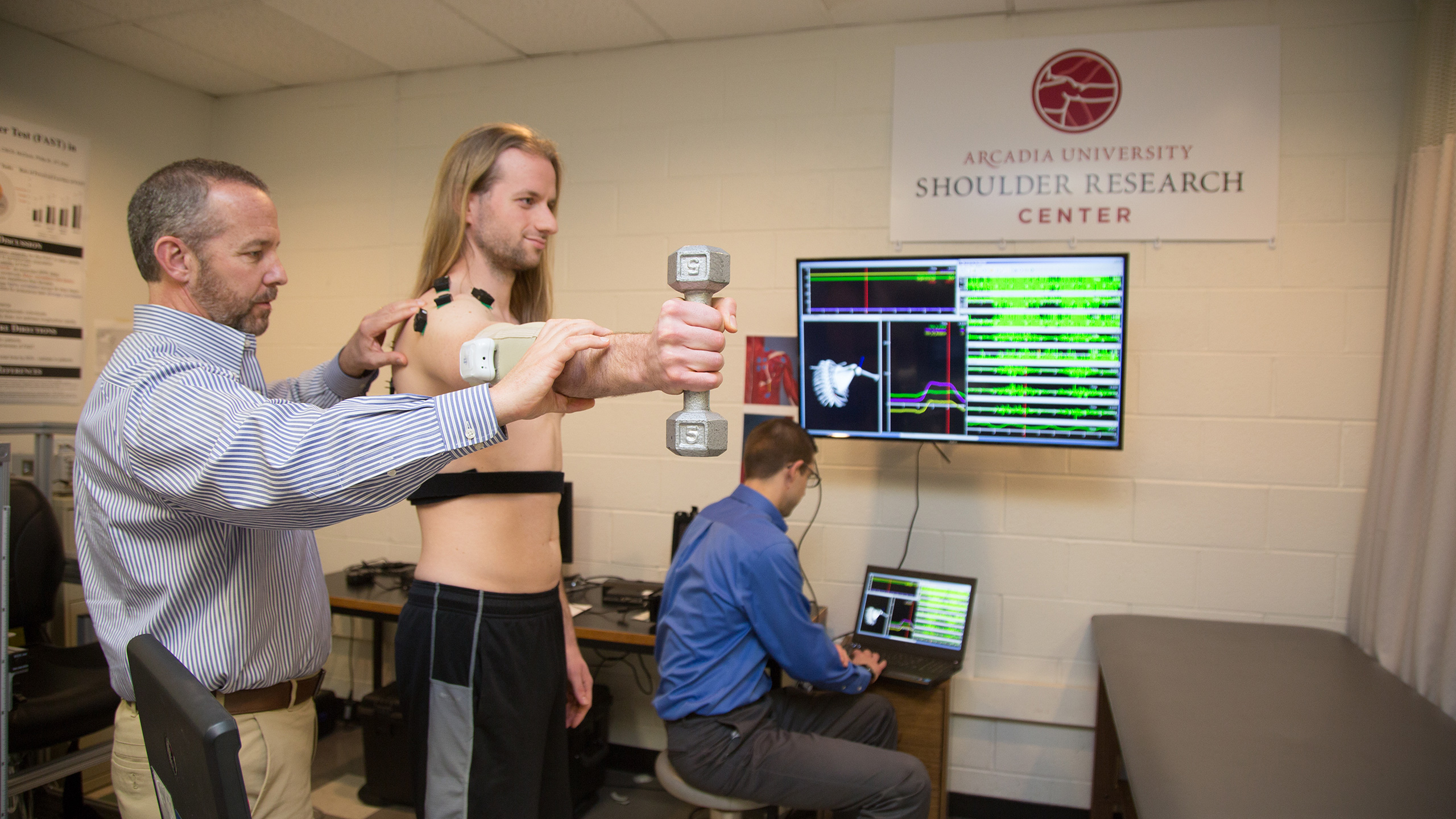
About the Shoulder Research Center
Shoulder pain is a common problem and frequently involves irritation of the joint and tendons of the rotator cuff muscles which are located around the shoulder. Physical therapy treatment is usually the first line of treatment for several shoulder conditions. We are seeking to better understand how and why therapy works in some individuals and does not work in some others.
The overall goal of the Shoulder Research Center is to understand the underlying causes of shoulder pain and develop optimal treatment approaches to manage shoulder pain.
Leadership
Dr. Philip McClure’s research centers on shoulder dysfunction and his work includes both laboratory and clinical studies. The broad goals of his research are to understand biomechanical and neurophysiological mechanisms underlying shoulder dysfunction and to develop interventions to optimize shoulder function after injury. His research has centered around disorders of the rotator cuff and related biomechanical issues and has included extensive study of 3-dimensional scapular kinematics and translation of that work into clinical testing. He has successfully coordinated teams involving physical therapists, engineers, orthopedic surgeons and basic scientists to address clinically relevant questions. He has also mentored several doctoral students and post-doctoral researchers on shoulder related research. Currently his studies are focused on neural activation of the rotator cuff and the effect of pain, pain relief and exercise on neural activation.
Shoulder Team
We are a group of Physical Therapy researchers dedicated to understanding the underlying causes of shoulder pain and developing optimal treatment approaches to manage shoulder pain.
- Philip “Phil” W. McClure PT, PhD, FAPTA, Professor / Chair
- Kshamata M. Shah PT, PhD, Associate Professor
- Daniel “Dan” Safford PT, DPT, MAT, CSCS, Assistant Professor
- Scott K. Stackhouse PT, PhD, Adjunct Professor
- Fred “Breidy” Breidenbach PT, DPT, SCS, FAAOMPT, Assistant Professor
- John Keegan, DPT, OCS, PhD Student
- Jeff Paskewitz, DPT, OCS, PhD Student
Equipment Center and Lab
The Shoulder Research Center and Department of Physical Therapy are housed within the Health Science Center at Arcadia University and have space dedicated to research activities as well as areas available for exercise, meetings etc. The lab also has several work spaces available for lab personnel. The lab’s equipment includes:
- Kinesiological Fine-wire EMG set-up
- Polhemus Liberty 3D magnetic tracking system
- Delsys 8-channel electromyography system
- Grass Muscle and Nerve Stimulator (S48) unit
- GE Logiq-e Ultrasound
- Hand-held and machine mounted force transducers
- Humac Norm isokinetic dynamometer
- BTE Primus muscle performance testing system
- 2 AMTI force plate
- 8 camera Markerless Motion Capture with Theia software
- Quantitative Sensory Testing instrumentation

